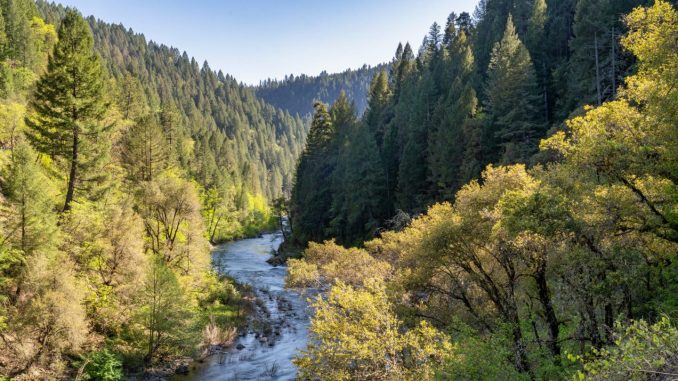
[ad_1]
The California Department of Fish and Wildlife (CDFW), Department of Cannabis Control (DCC) and State Water Resource Board (SWRCB) announced in a press release on July 1 that it would be collectively authorizing enforcement teams for the 2022 cannabis growing season. This is an annual announcement, as the CDFW also announced its preparation for the 2021 growing season in July last year.
This effort is funded by Proposition 64 which enables these government agencies to focus on protecting “priority watersheds and areas with sensitive habitat and/or threatened or endangered species.” The agencies will work with local county, state, and federal groups to ensure enforcement is properly handled.
“The environmental impacts of illegal cannabis operations can last decades and cause irreparable harm to our natural resources,” said CDFW Deputy Director and Chief of the Law Enforcement Division David Bess. “Those not complying with state laws and disregarding the environmental impacts associated with illegal cultivation practices will be subject to enforcement actions.”
The water streams of California, and the wildlife that depends on them, suffer when illegal cannabis grow operations divert water. “Tributary streams are often critical in providing clear, cold water for larger waterways,” the press release states. “Many sensitive aquatic species such as southern torrent salamanders, coastal tailed frogs, steelhead and coho salmon rely on these tributaries in the late summer months to maintain water quality and temperatures necessary for survival.”
Furthermore, the health of these streams directly affects the “physical, biological, and chemical impact” of the entire local area, which is home to countless creatures whose habitat needs to be maintained.
The drought in California has hit a historic low once again, making it imperative to protect these waterways. “Complying with the state’s cannabis regulations is even more critical in drought conditions when limited water supply is available and water quality impacts are magnified,” said State Water Resources Control Board Office of Enforcement Director Yvonne West. “I am proud to work with so many individuals in the cannabis community dedicated to regulated and environmentally conscientious cultivation. The State Water Board is committed to taking enforcement action against those who harm our precious water resources.”
Santa Barbara County District Attorney Joyce Dudley also provided a statement, addressing the need for enforcement of illegal cannabis growing operations. “My office is committed to criminal and civil enforcement to protect the environment and public safety,” said Dudley. “Environmental harms from cannabis cultivation can be severe and long-term, including exposure to dangerous pesticides, water quality degradation, and wildlife injury. Moreover, cultivators who violate the law should not have an unfair competitive advantage over lawful cultivators who expend time and resources to stay in compliance. My office will continue to collaborate with our local and state agency partners to ensure compliance with the law.”
Other California counties, such as San Bernardino, are also supporting legislation aimed at both protecting groundwater as well as eliminating illegal grows. The County sponsored Assembly Bill 2728 and Senate Bill 1426, which would implement fines for violations. According to researchers, cannabis plants (depending on their stage of growth) could need up to six gallons of water per day during the growing season, which spans June through October.
At a press conference in May, Assemblymember Tom Lackey addressed illegal cannabis growers who are polluting local water reserves. “To any of those who are engaged in the illicit grows: I want you to know there’s a collective effort, and we’re coming after you,” said Lackey. “You come after a very sacred thing: our community. You come after our desert, and you’re stealing our water. You’re poisoning our land, and enough is enough.”
Outside of the growing season, Los Angeles County has also worked on targeting illegal grows. In July 2021, the Los Angeles County Sheriff’s Department made one of its largest seizures of illegal cannabis, which was valued at $1.2 billion.
[ad_2]
Source link

Soyez le premier à commenter